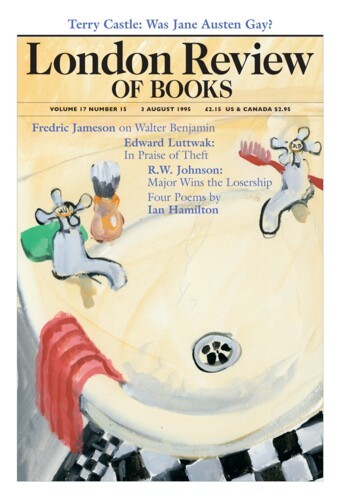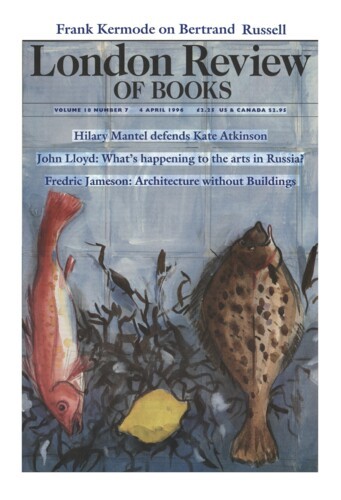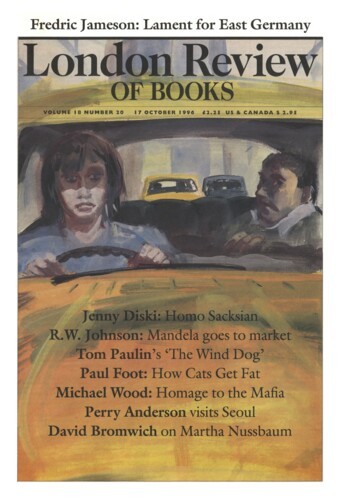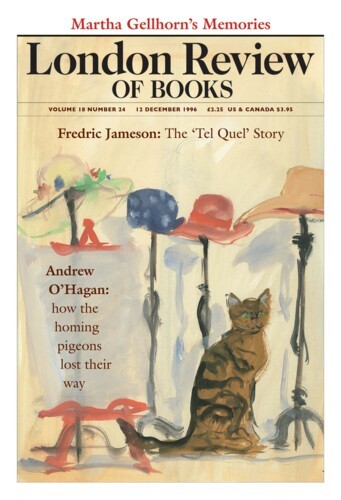Exit Sartre
Fredric Jameson, 7 July 1994
These two books take an essentially British perspective on the history of fellow-travelling in France since World War Two. Armed with the magic cap of François Furet’s ‘demystification’ of the Revolutionary ethos, they advance prudently into the thicket, gazing with chaste perplexity (and occasional exasperation) on the peculiar mores and customs of the denizens of outre-Manche, and in particular dwelling at some length on the Gallic overestimation of intellectuals as well as of the only too familiar (but evidently now extinct) ‘desire called revolution’. There is in this something of the wide-eyed fascination of children confronting an incomprehensible adult sexuality, but also a mild breath of the pastoral vocation. More modestly than those American economists who undertook to bring the good news of free enterprise to the post-Soviet dark ages in Eastern Europe, these writers both take satisfaction in their commitment to an ancient tradition of Anglo-American liberalism, whose moral and intellectual benefits they are prepared discreetly to administer to the Continent at the appropriate hour of need.





